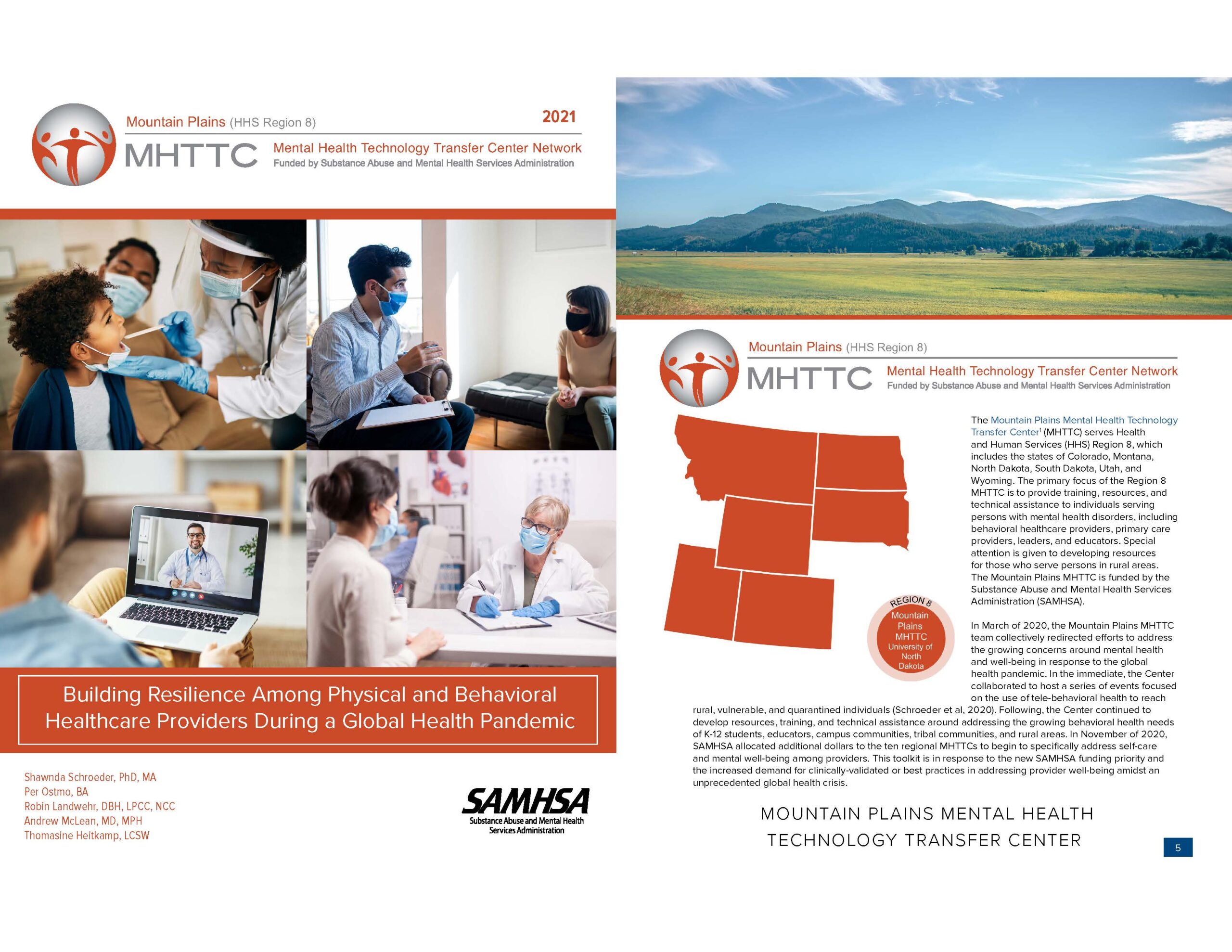Providing physical or behavioral healthcare to others during the global health pandemic can lead to increased levels of stress, fear, anxiety, burnout, frustration, and other strong emotions. It is imperative that physical and behavioral healthcare providers recognize personal signs of mental fatigue, are given supports in their organization to ensure continued productivity and quality care, and are provided with tools to learn how to cope and build resilience. This training series has been developed to encourage self-care and to assist in building resilience among physical and behavioral healthcare providers amidst the global health pandemic.
This session will outline common terms, introduce compassion fatigue, and discuss the impact of moral injury and traumatic stress. Speakers will also present a toolkit that has been developed to assist providers and their organizations in building resiliency.
Presenters will discuss home life stressors, challenges of managing work relationships during a time of crisis, and the current issues facing providers as they work to provide quality care during a public health emergency. This session will also offer specific solutions and key resources for fostering resilience and balancing demands of home life, clinical care, and professional relationships during a pandemic.
Providers are experiencing loss of normalcy, loss of routine, and other ambiguous loss. Many may also be dealing with grief over the loss of a loved one, or the loss of numerous patients. Compounding this sense of loss and grief, providers commonly carry their patients’ stories with them. It is important that providers connect with their patients. If providers feel nothing, then they cannot connect as strongly and may not be able to optimize patient care. However, this connection, especially during a pandemic, can lead to secondary traumatic stress (STS). This session will address signs and symptoms of grief and loss among providers that have been present during the pandemic, and will describe secondary traumatic stress. Presenters will also offer ways to prevent and respond to these experiences at both an organizational and individual level.
Research indicates that, although efforts to promote resilience at an individual level are important, addressing characteristics of the external environment are at least as important. Absence of organizational and leadership support for provider distress during COVID-19 may adversely impact organizational resilience, patient safety, and staff retention. Providers cannot sustain their own well-being without the support of their leadership. Targets for improvement at the organizational level include ensuring:
